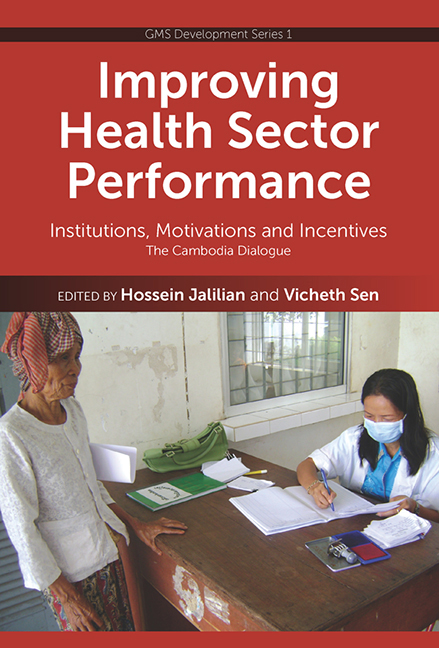 Improving Health Sector Performance
Improving Health Sector Performance Published online by Cambridge University Press: 21 October 2015
There is growing international evidence that the effectiveness of health services stems primarily from the extent to which the incentives facing providers and consumers are aligned with “better health” objectives. Efficiency in health service provision requires that providers and consumers have incentives to use health care resources in ways that generate the maximum health gains. Equity, in at least one sense, requires that consumers requiring the same care are treated equally, irrespective of their ability to pay. Efficiency in the use of health services requires that consumers are knowledgeable about the services on offer and which are most appropriate for their needs. Although these principles are enshrined in the design of every health system in the world, they have proven extremely difficult to apply in practice. Health care providers have financial obligations to their families as well as professional obligations to their patients. Health service consumers generally lack information about both their health and health services so that they underconsume or overconsume health care. Matters are unlikely to improve until there is more empirical evidence of the way health service providers and consumers in different parts of the world are actually motivated and how these incentives are best modified to improve health service efficiency and equity.
Health provider incentives are generated by the institutions (rules) that govern their professional behaviour. These can be classified broadly into institutions that generate extrinsic incentives (organizational formats, managerial arrangements, social norms, and remuneration), and intrinsic incentives arising from values such as altruism, beliefs, reputation, and work satisfaction. The incentives that consumers have to use health services efficiently stem from intrinsic incentives arising from concern for their health, knowledge about the available health services, and social institutions, such as the trust and respect that mediate their transactions with providers.
This volume is based on a collection of papers from both Cambodian and international scholars, researchers, and practitioners in the health sector presented at a two-day international conference co-organized in Phnom Penh on 26–27 April 2010 by the Cambodia Development Resource Institute (CDRI) and the Oxford Policy Institute (OPI) with support from the Department for International Development (DFID), the United Kingdom. Under the theme, “Improving Health Sector Performance: Institutions, Motivations and Incentives”, the conference brought about sixty Cambodian researchers and health sector managers together with researchers from the region and elsewhere.
To save this book to your Kindle, first ensure [email protected] is added to your Approved Personal Document E-mail List under your Personal Document Settings on the Manage Your Content and Devices page of your Amazon account. Then enter the ‘name’ part of your Kindle email address below. Find out more about saving to your Kindle.
Note you can select to save to either the @free.kindle.com or @kindle.com variations. ‘@free.kindle.com’ emails are free but can only be saved to your device when it is connected to wi-fi. ‘@kindle.com’ emails can be delivered even when you are not connected to wi-fi, but note that service fees apply.
Find out more about the Kindle Personal Document Service.
To save content items to your account, please confirm that you agree to abide by our usage policies. If this is the first time you use this feature, you will be asked to authorise Cambridge Core to connect with your account. Find out more about saving content to Dropbox.
To save content items to your account, please confirm that you agree to abide by our usage policies. If this is the first time you use this feature, you will be asked to authorise Cambridge Core to connect with your account. Find out more about saving content to Google Drive.